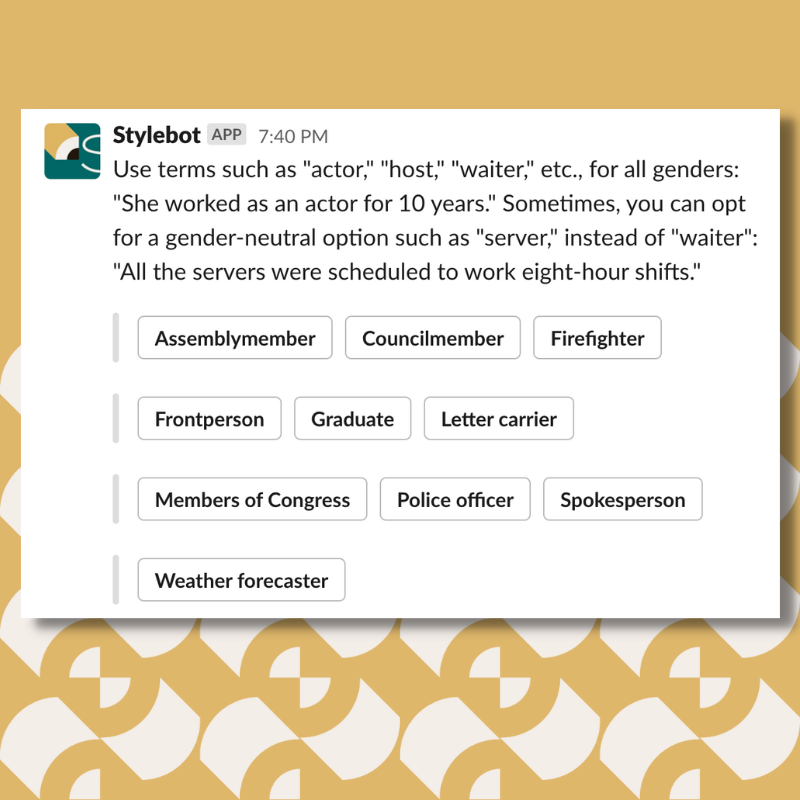As you can see, there are often gender-neutral options that work just fine. In our restaurant example, you could use “server.” Frankly, we’d rather see some of these gendered terms on this banned words list instead of, um, “amazing” 👀 Are there any words you’re trying to stop using in 2023?
💬 Need more tips?
Want to get writing tips like these on demand? Try Stylebot for free.
📝 About Stylebot
Stylebot helps media professionals save time without sacrificing quality by answering copy editing questions on Slack and Microsoft Teams. We’re on a mission to make editing faster, easier and more fun ✨Lean more about Stylebot or follow us on Twitter and Instagram.


